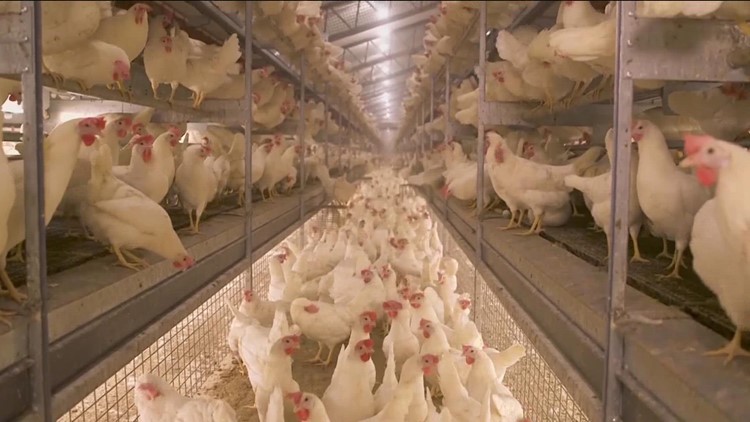LANCASTER COUNTY, Pa. — The U.S. Department of Agriculture reported the discovery of avian flu outbreaks at three more Lancaster County poultry farms, according to data on its Avian Influenza Dashboard.
The outbreaks were reported on Feb. 22, 23 and 24, the USDA said. The farms were categorized as World Organization for Animal Health Poultry facilities. A total of 10,200 birds are affected by the latest outbreaks, according to the USDA.
Earlier last week, an outbreak was found at another WOAH poultry farm in southern Lancaster, affecting an estimated 97,000 birds.
This is the 10th avian flu outbreak found in Lancaster County since the beginning of the year, according to the USDA.
A total of 167,170 birds have been affected in the county this year, the USDA data shows.
Lancaster County is the nation's fourth-largest poultry producer, generating more than $580 million a year, according to USDA.
Highly Pathogenic Avian Influenza does not generally impact humans. While the first human case was discovered last year in Colorado, experts believe the health risk to people is low.
According to the U.S. Centers for Disease Control and Prevention (CDC), it is safe to eat poultry and eggs when they are properly handled and thoroughly cooked.
The CDC mentions that the proper handling and cooking of poultry and eggs to an internal temperature of 165 degrees Fahrenheit kills bacteria and viruses, including HPAI viruses. This means that over-easy and sunny side-up eggs should be avoided.
Also, people should not consume meat or eggs from poultry that are sick.
There is no cure for avian flu. Depopulation is the only solution.
HPAI is transmitted through contact with fecal matter from wild birds, infected birds, contaminated equipment and contaminated boots and clothing.
In order to protect flocks from the disease, backyard chicken owners should:
- Keep poultry inside their coop to avoid contact with wild birds.
- Remove birdhouses and feeders used by wild birds.
- Wear dedicated footwear and clothing to work with birds.
- Wash hands before and after working with birds.
- Clean and disinfect equipment in contact with birds.
- Limit visitors to the premises.



